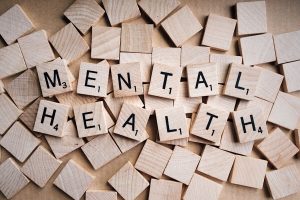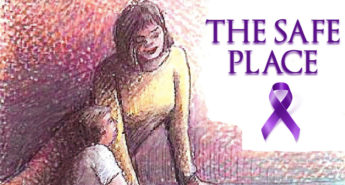 When it comes to children, many people think that their life is so simple there is no way they would suffer from mental health issues, so there is no need to worry about it. The truth is that 1 in 6 children aged between 6 and 17 experience a mental health condition, according to The National Alliance on Mental Illness (NAMI). Moreover, half of all lifetime mental health issues begin at the age of 14. This is why paying attention and talking to your children about mental health at a young age is so important. Starting a conversation about this with your children will not only help them recognize the signs of mental health problems, but also help with starting early intervention and getting help if there are problems.
When it comes to children, many people think that their life is so simple there is no way they would suffer from mental health issues, so there is no need to worry about it. The truth is that 1 in 6 children aged between 6 and 17 experience a mental health condition, according to The National Alliance on Mental Illness (NAMI). Moreover, half of all lifetime mental health issues begin at the age of 14. This is why paying attention and talking to your children about mental health at a young age is so important. Starting a conversation about this with your children will not only help them recognize the signs of mental health problems, but also help with starting early intervention and getting help if there are problems.
This is why May has been dedicated to be National Mental Health Awareness Month. Throughout the whole month of May, NAMI works to help bring down the stigma and discrimination concerning mental health issues so that children and adults alike can get the help they need without feeling like they are substandard.
NAMI doesn’t want anyone to have to suffer in silence. This is needed now more than ever since many of us are struggling with the new norms that COVID-19 has brought upon us. Another thing NAMI wants to help people realize is that mental health doesn’t just refer to bipolar disorders or schizophrenia, but more common issues such as anxiety disorders, ADHD, depression, OCD, and eating disorders. All of these are disorders that could start in children and develop over time. This is why getting help is so important. NAMI also realizes it is sometimes hard to know if your child is having issues because they may be reluctant to talk to you about it.
They suggest looking out for these 10 common signs:
- Feeling sad or withdrawn for more than 2 weeks.
- Seriously trying to harm or kill oneself or plans to do so.
- Severe, out of control, and risky behaviors.
- Sudden overwhelming fear for no reason.
- Not eating, throwing up, or using laxatives to lose weight; sudden loss or gain of weight.
- Seeing, hearing, or believing things that are not real.
- Repeatedly using drugs or alcohol.
- Drastic changes in mood, behavior, sleeping habits, or personality.
- Extreme difficulty concentrating or staying still.
- Intense worries or fears that get in the way of daily activities.
It is important to remember that just because your child shows one or more of these symptoms does not automatically mean there is a problem, but that it is a good idea to have a conversation about what you noticed and possibly reach out to a counselor or therapist to get help. Some things you could say to start the conversation are:
- “It worries me to hear you saying things like this. Is there something you would like to talk about? “
- “I’ve noticed you haven’t been yourself lately. Would you like to talk to me about what is going on?”
When having these conversations, remember to be supportive and try not to be judgmental, accusative, or dismissive because it could cause them to shutdown and not want to talk about what is going on. It is also important to check in regularly with them after having the conversation and try to learn more about mental illnesses that they could potentially have. These small steps could put you and your child on the right track for managing potential mental health problems in the future.
For more information about Mental Health issues visit NAMI’s website at www.nami.org or call the NAMI helpline at 1-800-950-NAMI or in a crisis text “NAMI” to 741741. Reaching out and getting help for mental health is always a good thing and it doesn’t mean that you or your child has done anything wrong. Helping your child have a promising future is the best thing you can do for them.
If you or anyone you know needs help with this or domestic violence, please call The Safe Place at 501-354-1884, our crisis line at 1-888-554-2501, or our Perryville office at 501-889-2030.




Leave a Reply